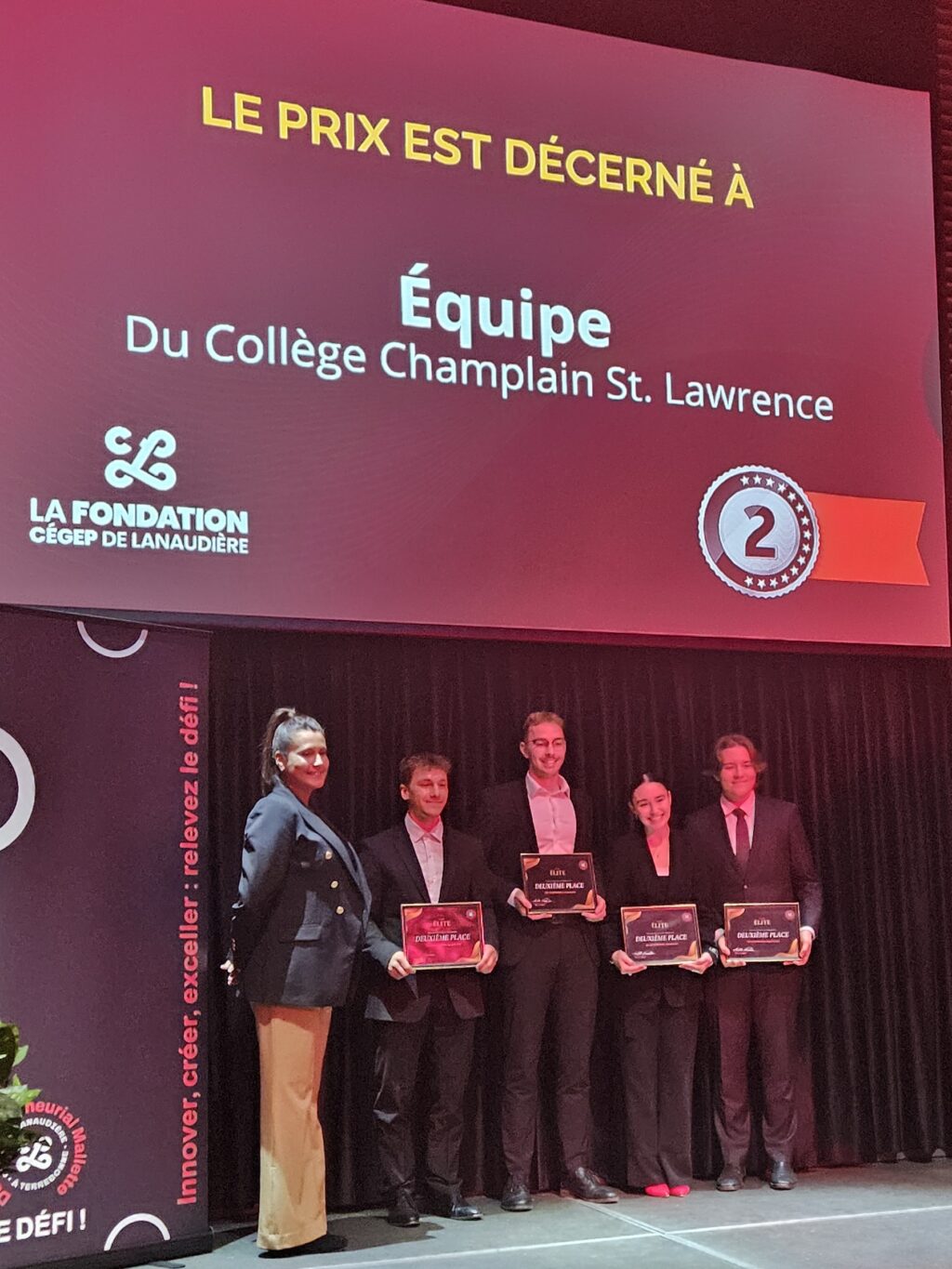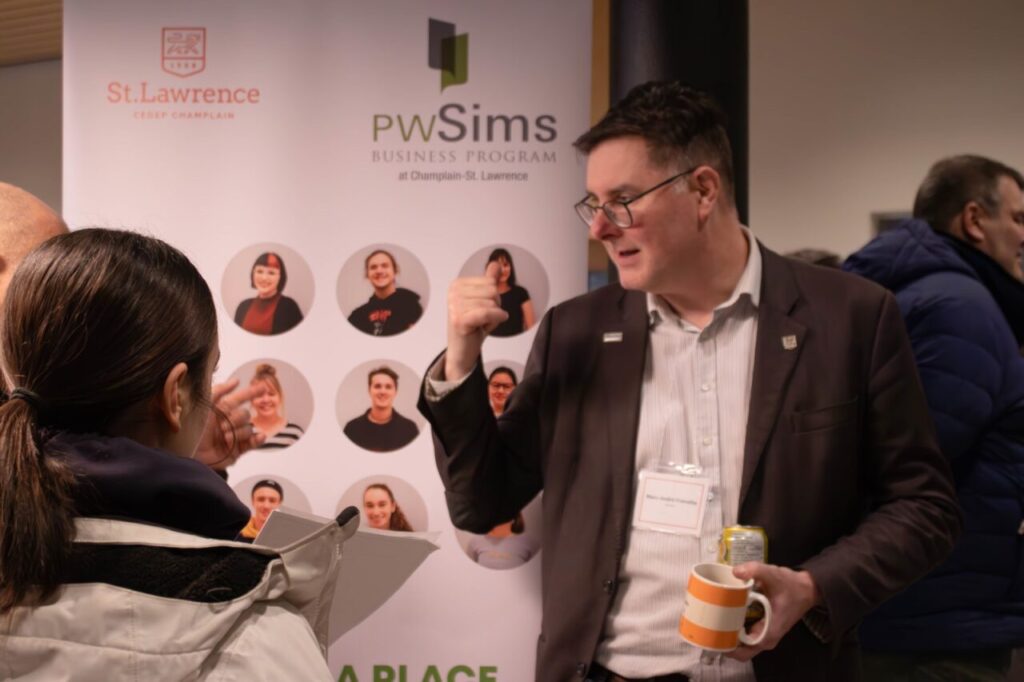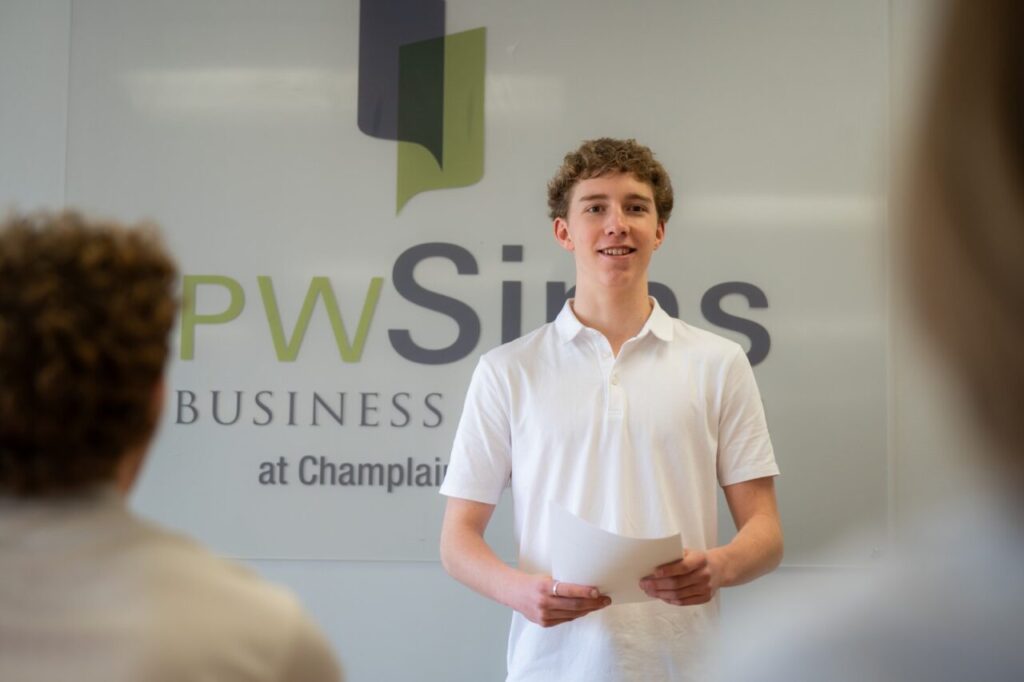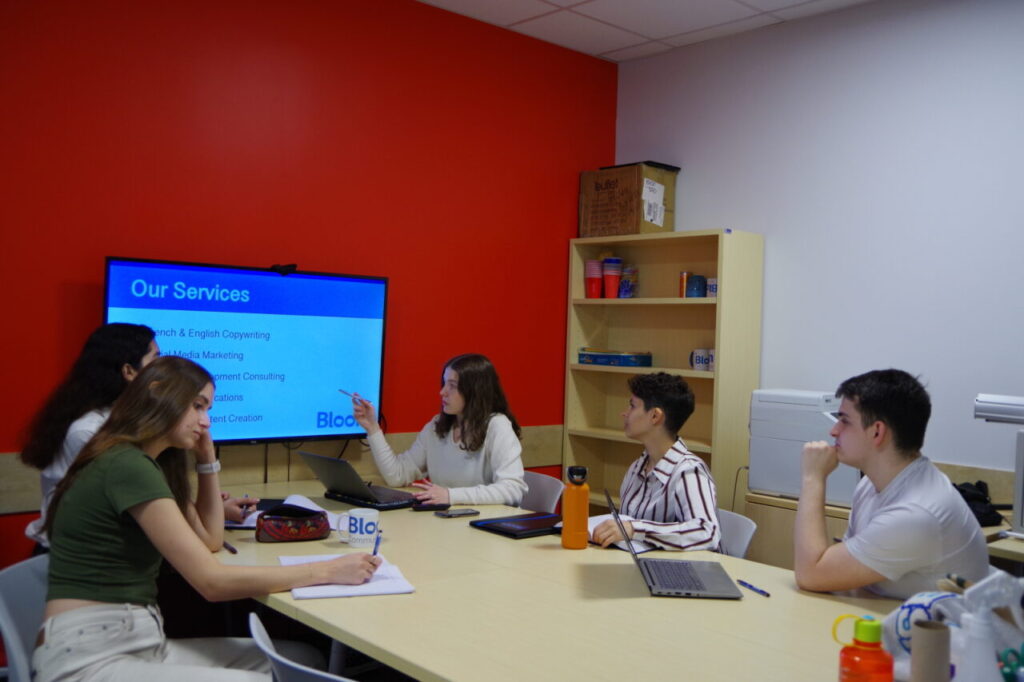410.G0 - Career
Business
The P.W. Sims Business Program in Administration and Management Technology is designed to equip students with a strong foundation in the principles and practices of modern business.
Admission
- Fall
Duration
- 3 years
Interests
- Business & Commerce
Requirements
- College general admission requirements
Why Choose the 3-Year P.W. Sims Business Program?
- Students get the opportunity to study business in-depth while at Cegep, taking more than 20 business-related courses in areas such as accounting and finance, marketing, human resources management and international business.
- The practical focus of this program includes classroom use of laptops (required at the start of first year), an information technology course each year, contact with local businesses, as well as two internships: one at the end of second year (for three weeks) and one at the end of third year (for six weeks).
- Graduates have many options upon completing their DEC. They can enter the workforce directly in a variety of business-related careers or they can continue their studies at university. Our students who have business training and speak both English and French are in high demand with employers.
- St. Lawrence has DEC-BAC arrangements with several universities, so that graduates with strong academic results from their DEC program can complete a bachelor’s degree at university more quickly.

Build Your Future in Business, Right From CEGEP
A Comprehensive Business Curriculum that Prepares you for the Real World
Dive into the world of business with a hands-on program that includes over 20 courses in accounting and finance, marketing, human resources, international business and more.
After your three years, you will graduate not only with knowledge, but with the experience and confidence to thrive in the workforce or succeed at university.
A Program That Puts You Ahead in the Job Market
The P.W. Sims program includes two internships, giving you valuable work experience that stands out to employers. Whether you choose to enter the workforce or continue to university, you will graduate with a profile and network that showcase your skills, experience, and bilingual advantage that will set you apart.
From the Classroom to the Competition Floor
Business case competitions provide students with the opportunity to apply their knowledge to real-world challenges in a competitive setting. Each year, several of our upper-year students choose to take part in a competition.
Participating in case competitions enhances academic and professional development and helps students apply what they learned in the classroom.
20+
business courses
2
internships
up to 4
opportunities to participate in case competitions each year
Math Pre-requisites for University Studies
Students who wish to pursue university studies in business will need to take additional Math courses during their CEGEP studies in preparation. These courses will be added to their schedule by the Academic Advisor. To be eligible to enroll in these courses, students must have completed TS Math 5 or SN Math 5.

DEC-BAC Agreements
For those with strong academic results, we have agreements with several universities to recognize courses in our program. Some universities provide our students with advanced standing, while others allow the transfer of up to 30 credits.
In recent years, we have had agreements with the following universities. Please note that as we are currently revising our DEC-BAC agreements, the following is subject to change:
- Université du Québec à Trois-Rivières
- Université du Québec à Rimouski
- Université Laval
- Bishops University
- Concordia University
- Griffith University (Australia)

410.G0 Administration and Management Technology
If you are eligible to attend English school under the Charter of the French language and are in possession of a certificate granted by the Ministry of Education, you are considered a Certificate Holder. Your course sequence will then be determined by your results in the high school French course (1-2 or 3-4). For more information about Certificates, please consult the Ministry of Education’s website.
This program is currently under revision. Final course sequences for students starting their studies in Fall 2026 will be available in the coming months.
Students who plan to pursue university studies will receive personalized guidance from the Academic Counselor. Their course schedules (program grids) will be adjusted to include the necessary Math prerequisites required for university admission.


Your Path to Graduation
All college programs in Québec have a graduate profile that outlines the competencies students are expected to develop to graduate from the program. To assess whether these expectations are met, students complete a comprehensive assessment (CA).
The PW Sims Business Program graduates should be able to provide effective technical support, proven through actual work experience, in all sectors of activity and types of organizations, working with internal and external stakeholders, both nationally and internationally, related to the following areas:
- Accounting and financial resource management
- Customer service and marketing
- Human resource management
- Project management and entrepreneurship
- Logistics
Graduates must have developed:
- Professionalism and a sense of responsibility
- Autonomy, initiative, and versatility
- A desire to continually develop their skills and work methods
- Open-mindedness and creativity
- Rational thinking and critical judgment
- Strong interpersonal and communication skills
- Communication orally and in writing in French
Graduates must be able to:
- Carry out administrative tasks related to planning, organizing, coordination, analysis, and control
- Ensure that tasks are carried out according to general principles and the organization’s policies and standards, on time, and on budget
- Effectively use information and communication technologies
- Solve complex problems
- Effectively manage their time and priorities
- Work well with others in a team
- Adapt to technological, external environmental and organizational changes
- Demonstrate ethical and socially responsible behavior in both professional and personal situations
- Manage professional and personal responsibilities and development in the context of a healthy lifestyle
The Comprehensive Assessment (CA) will allow students to demonstrate the acquisition of all the competencies of the P.W. Sims Business Program as detailed in the Exit Profile. The CA will be linked to the Project Management Course, in which students will be asked to bring a project of their choosing from the conception phase to its realization. It will also showcase their ability to integrate the knowledge, skills and attitudes that they have learned throughout the program in a professional manner and in a business context. This will require them to manage all aspects of the project covering the many areas of business. In doing so, they will incorporate technology and demonstrate effective communication skills in both English and French.
As part of the Comprehensive Assessment, students will be asked to present the various stages of their project and its results. Though the project will require students to utilize their teamwork skills, an individual evaluation of each student, through an interview with faculty, will also be completed. During this interview, students will be required to demonstrate that they meet the Exit Profile. In addition, students will be required to submit a 250-word report in French summarizing their overall appreciation of the program and their suggestions for improvement, if any.
Where Might the P.W. Sims Business Program Lead You?
Your studies can lead to a wide range of academic opportunities and careers, including:
- Accounting
- Communications
- Data Analytics
- Digital Media Management
- Entrepreneurship, Business Start-Up
- Event Management
- Finance
- Human Resource Management
- Industrial Relations
- International Business
- Law (e.g. Commercial Law)
- Marketing
- Operations Management
- Sales
- Tourism
Be sure to check employer expectations or university pre-requisites, since they may vary.
St. Lawrence students can also see the Guidance Counsellor to further explore these options.

The P.W. Sims Student Experience
St. Lawrence offers a wide range of opportunities to gain hands-on experience through clubs, events, and activities. The following clubs may be of particular interest to students in the Business program:
- Bloom Communications
- Entrepreneurship Club (SLEC)
- Kickstart SLC
- OSEntreprendre
All extracurricular activities are open to all SLC students. Visit the Clubs & Sociocultural Activities page for more information and the complete list of clubs.
